Day began on the Schooner Harvey Gamage at 5:00 AM with the loud clanking of the windlass above my clammy bunk in the forward most compartment of the ship called the fo'c's'le or forecastle. As the crew pumped the arms up and down in a seesaw fashion to retrieve the anchor chain, it made its characteristic deep rumbling sound as they fed the heavy links into its wooden housing box above my cramped quarters where I bunked with Gabe and Madoc who were gracious enough to share their space with me for my leg of the Ocean Classroom adventure from Key West up to the Gulf Coast.
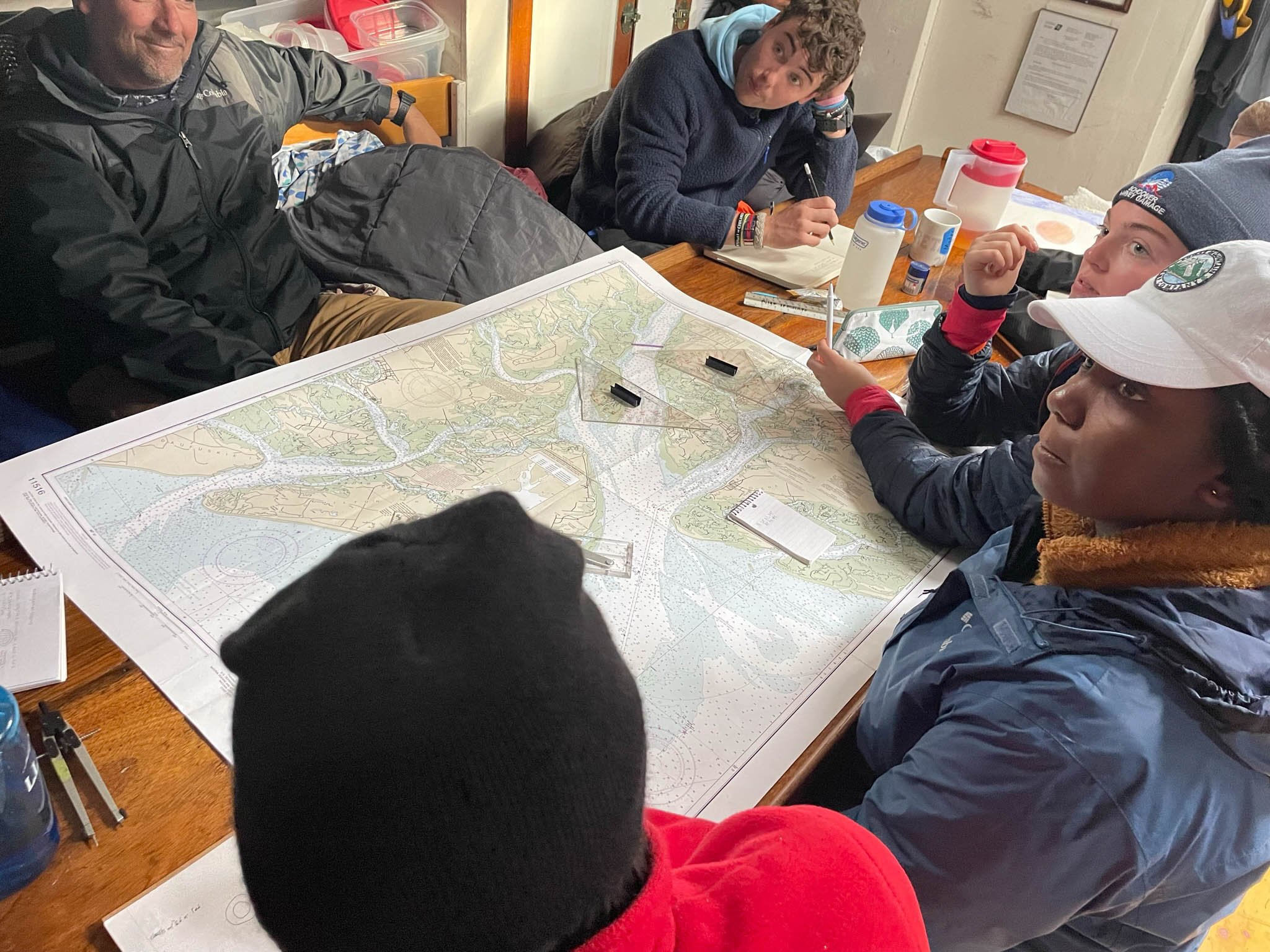
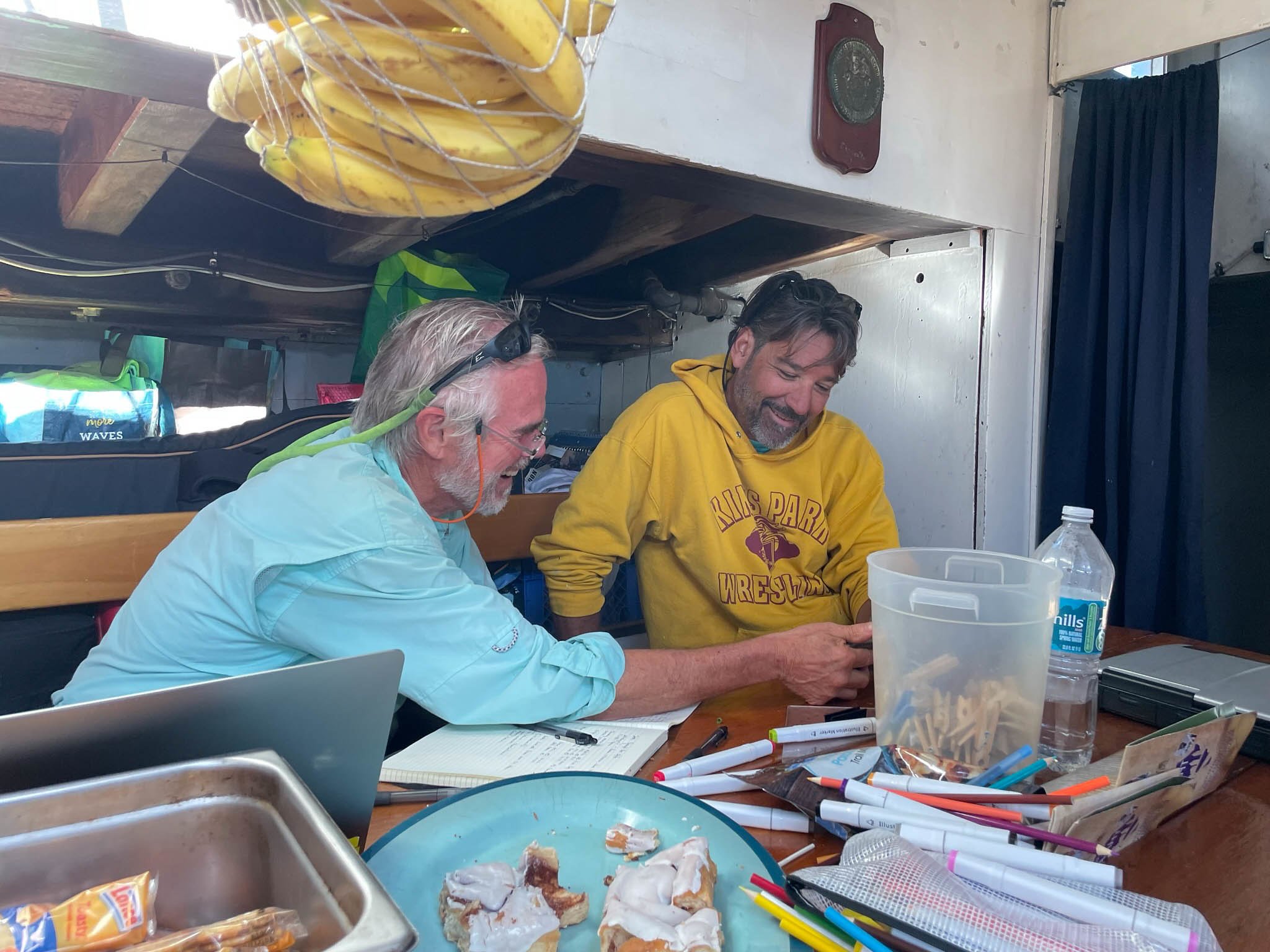
Once the 500-pound anchor broke free of the water, Emerson, the ship’s bosun along with Hayden, lashed it securely to the port side of the Harvey Gamage. Now untethered from the seafloor, we could begin our slow-paced journey from inside the protective shelter of Dauphine Island up the Mobile River to our anticipated dockage at the Gulfquest Maritime Center at the port of Mobile.
As we chugged up through the dense fog pushed by our little workhorse diesel, I imagined what it would have been like to be an original inhabitant of these bayou lands thick with alligators, snakes and infested with all manner of insects among other creatures that call this lowland jungle environment home. I also thought of mariners who ventured from distant ports who traveled across vast uncharted seas without modern navigation aids such as the depth sounder or the GPS that allows us to thread narrow channels or the radar that identifies objects in our path and our engine that at the moment was keeping our vessel from drifting into the shoals that lay to the port and starboard sides of the vessel as we navigated the channel.
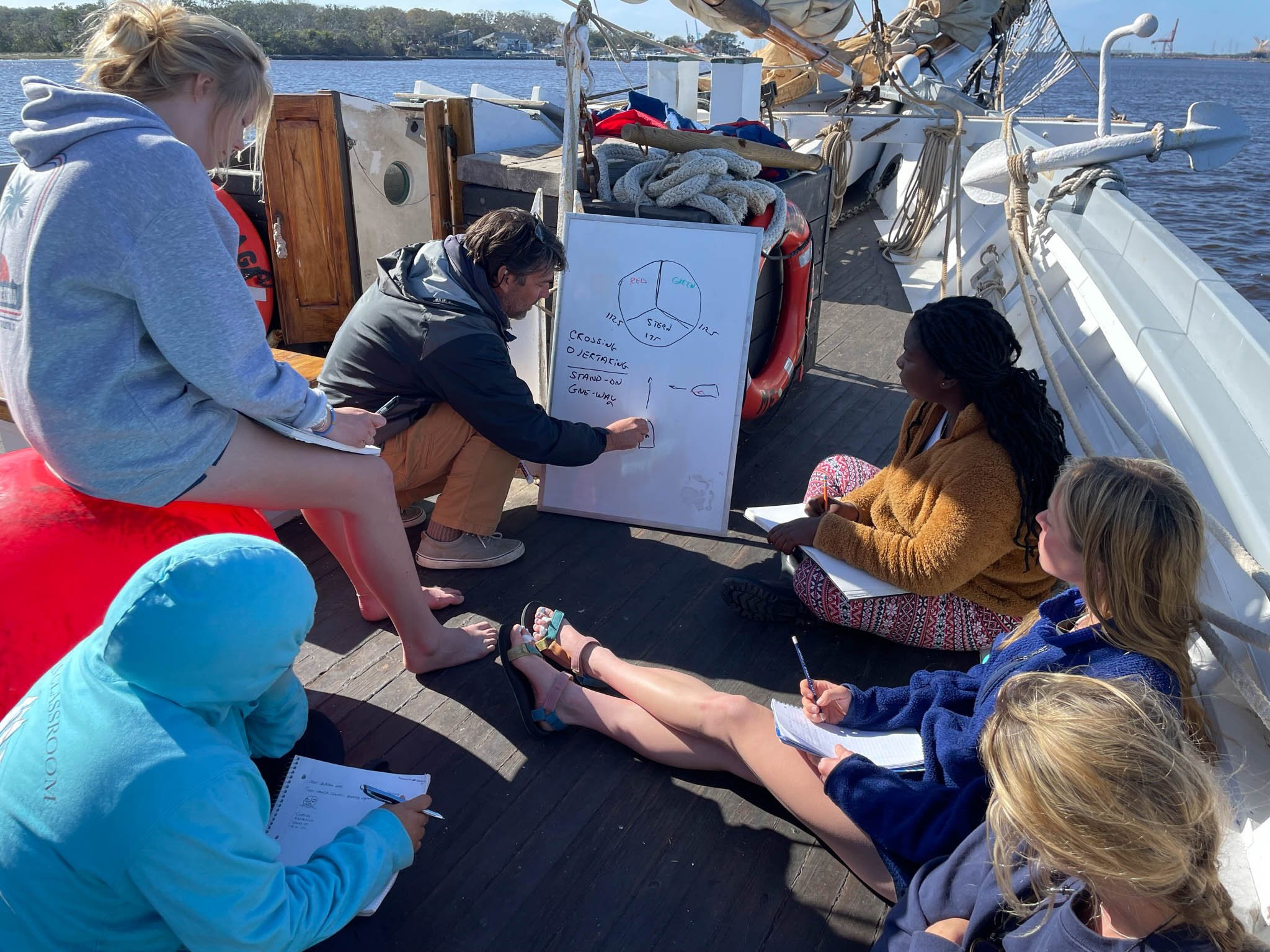
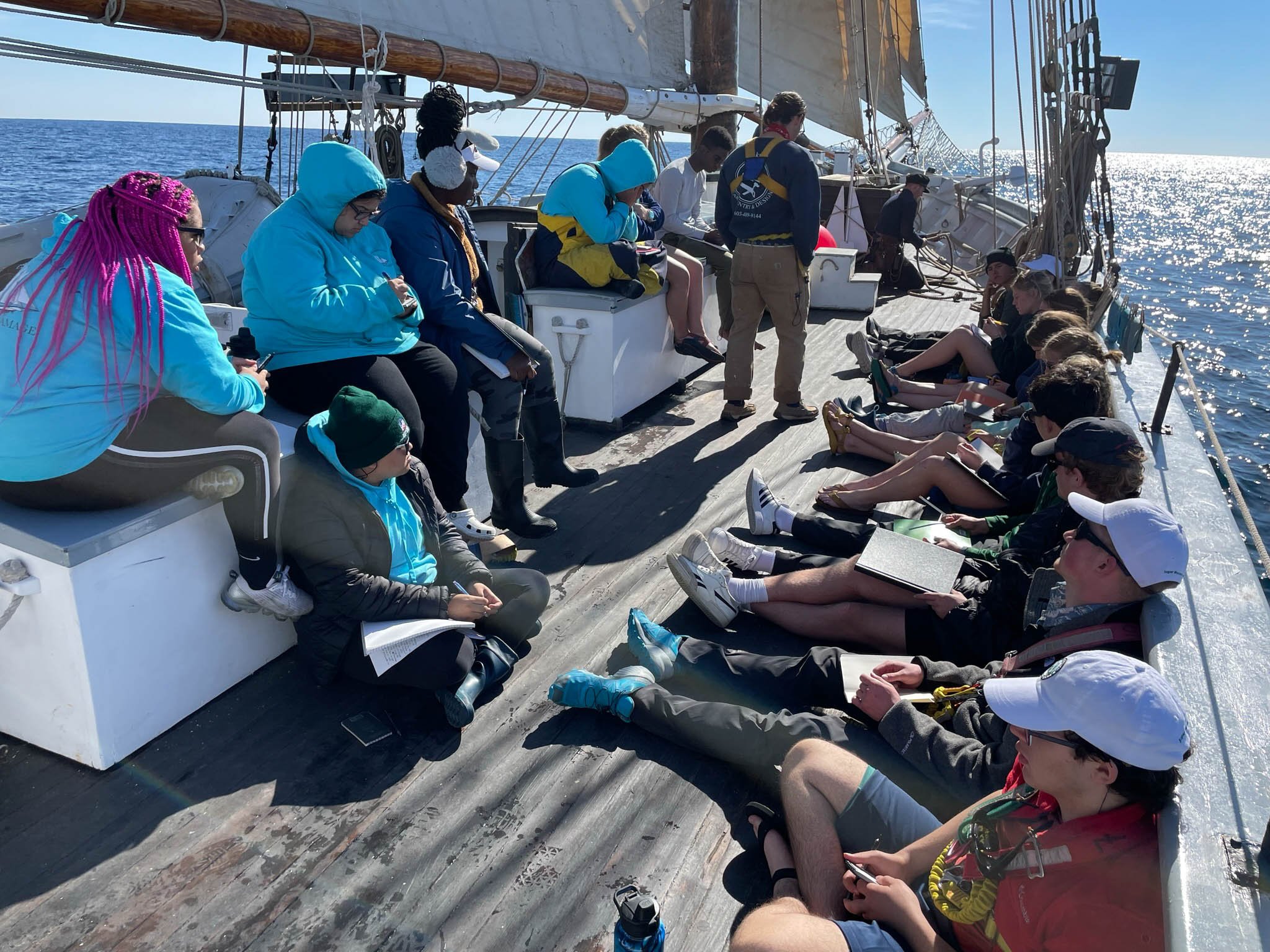
I thought about the human cargo that passed through these waters as part of the international slave trade that provided the labor for the cotton, tobacco and sugarcane industries in the antebellum south as we ventured to mobile specifically to learn more about the epic and horrendous journey of the slave ship Clotilda that made its journey to Benin West Africa at the eve of the Civil War to purchase and forcefully remove 110 souls from their native lands.
In preparation for this portion of the voyage, we read the chilling book Barracoon written in 1927 by Zora Neale Hurston which is the first-hand account of Cudjo Lewis. Lewis was taken from his home outside Benin and sold into slavery and made the middle passage on the slave ship Clotilda to the port of Mobile and sold just as the American Civil War broke out.
As we navigated the fog, I envisioned the Clotilda threading these same waters to its hideout at 13 Mile Island just 8 miles up the river from Mobile. It was from this location that the human cargo was unloaded and the ship was burned and sunk to get rid of the evidence of this illegal journey, as the importation was a federal crime since its abolition in 1808.
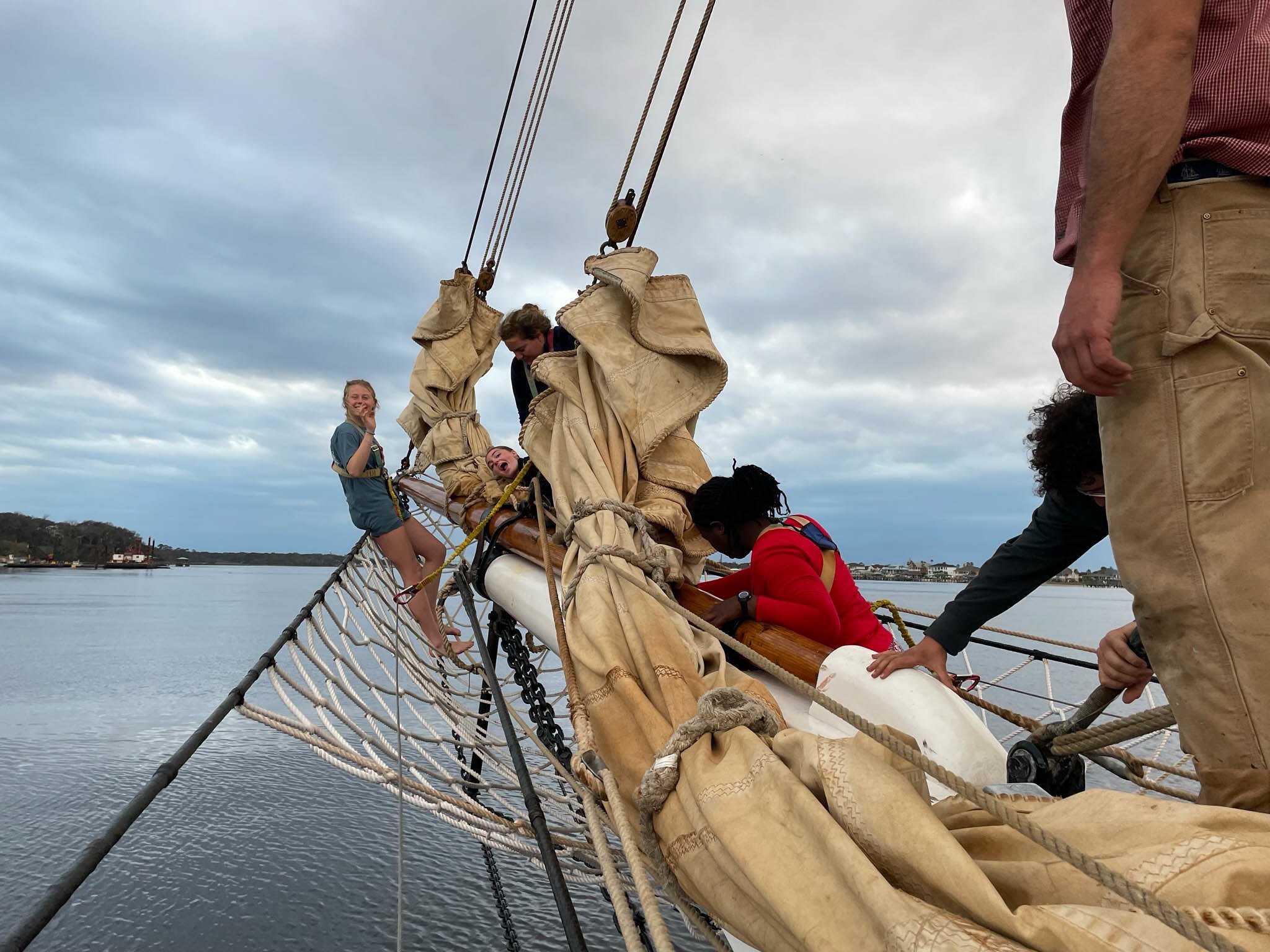
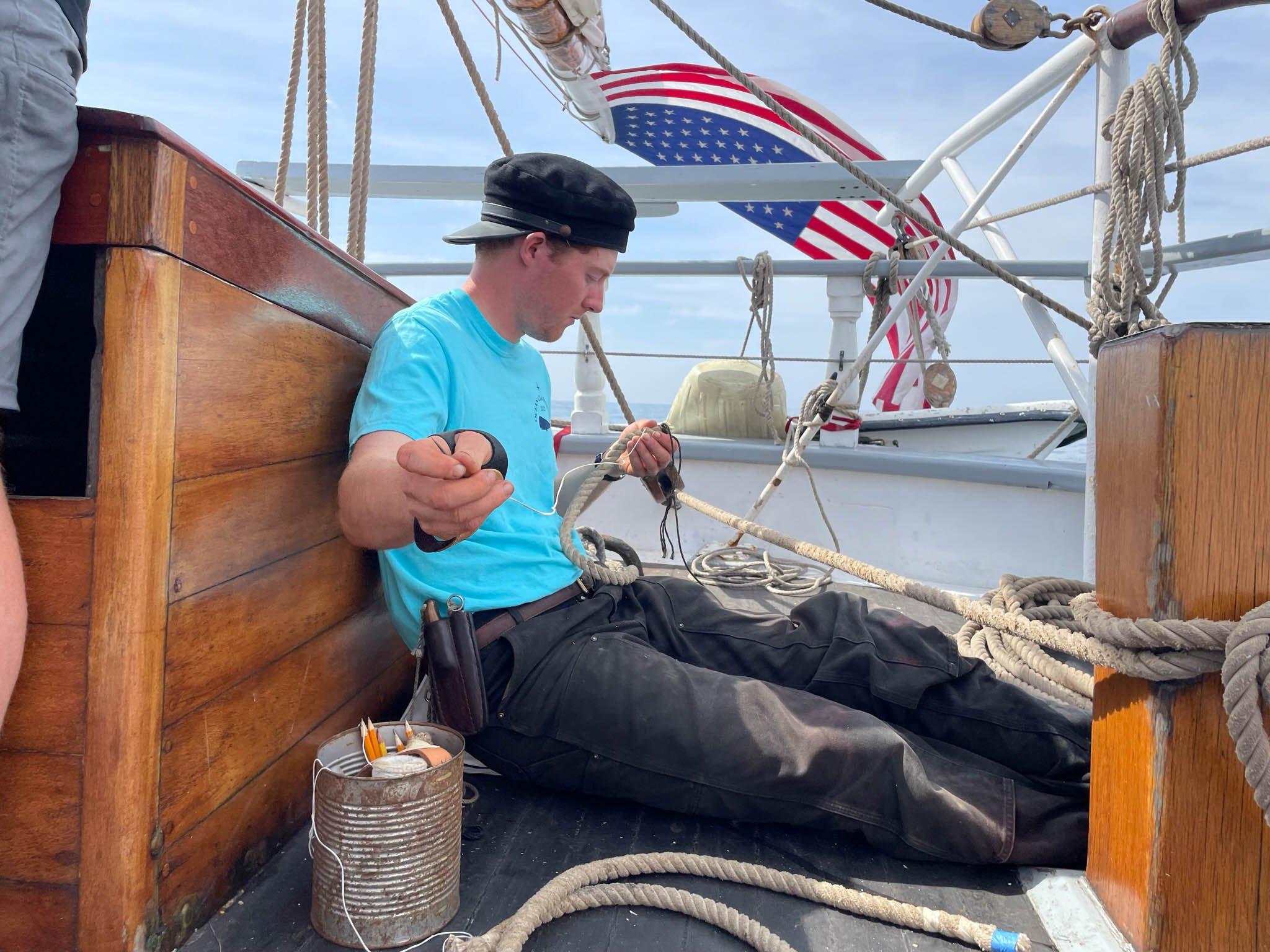
The story of the Clotilda had become muted over the passage of time until Ben Raines who is a local investigative journalist became consumed with finding out the location and identifying the remains of the ship. Ben and the descendants of the the Clotilda’s forced passengers felt it very important to have physical proof that this event took place. Documenting the site would be of great importance to the descendants that built and still occupy the community of Africatown just north of the city, close to where their relatives were unloaded and sold back in 1860.
In 2018 Ben Raines finally found the ship's remains and with fortune we were able to get Ben to take us to the site of the Clotilda up the Mobile River where we were able to view the profile of the ship through his side scan sonar from his center console runabout. It was a powerful experience for us all to hear Ben’s story about the ship and how he traced its whereabouts by combing through the journals of the ship’s captain and owner. Later that day we visited Africatown on foot and went to the graveyard that marked the resting place of the people that made the horrendous 70-day journey often referred to as the middle passage.
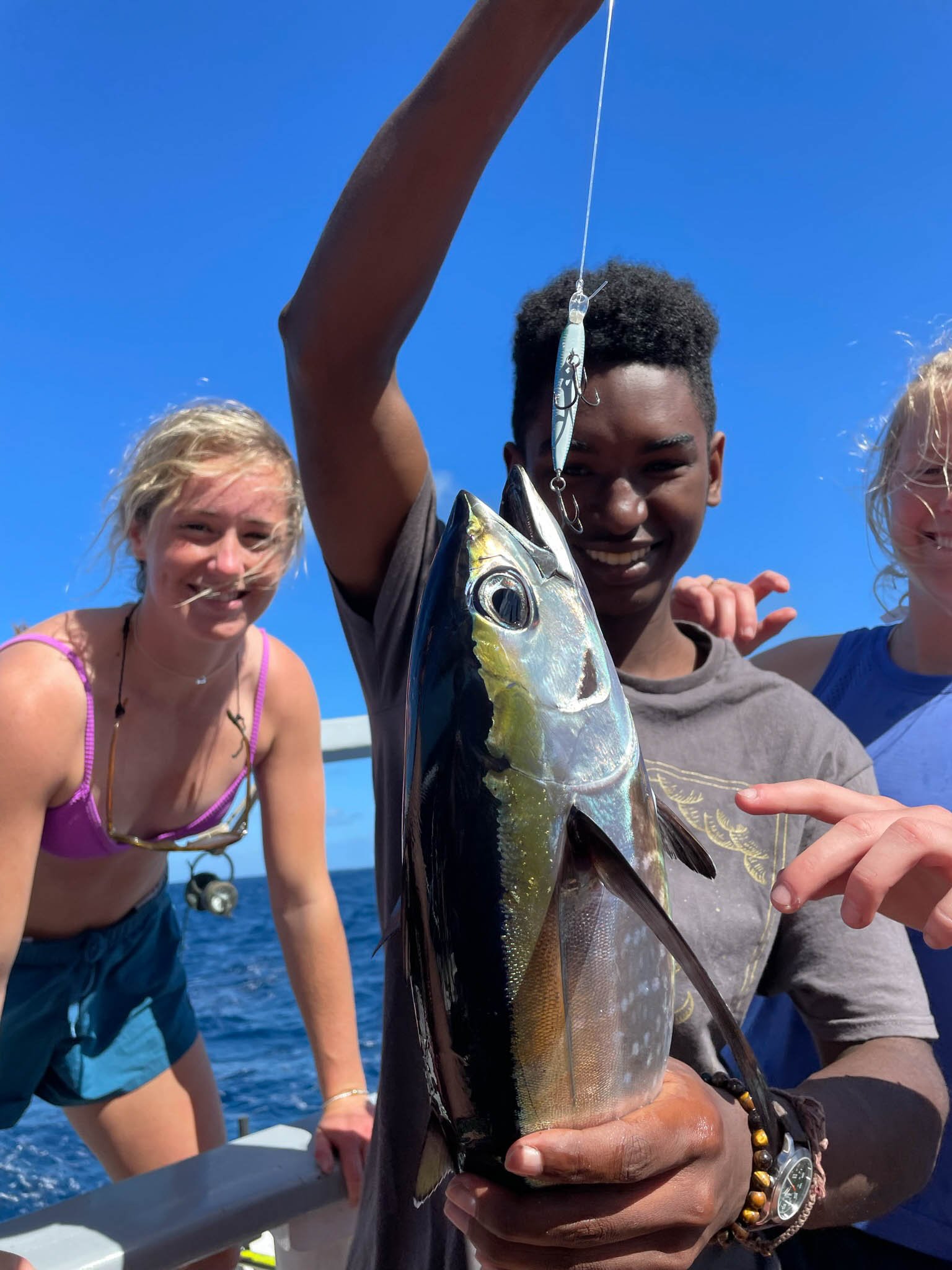
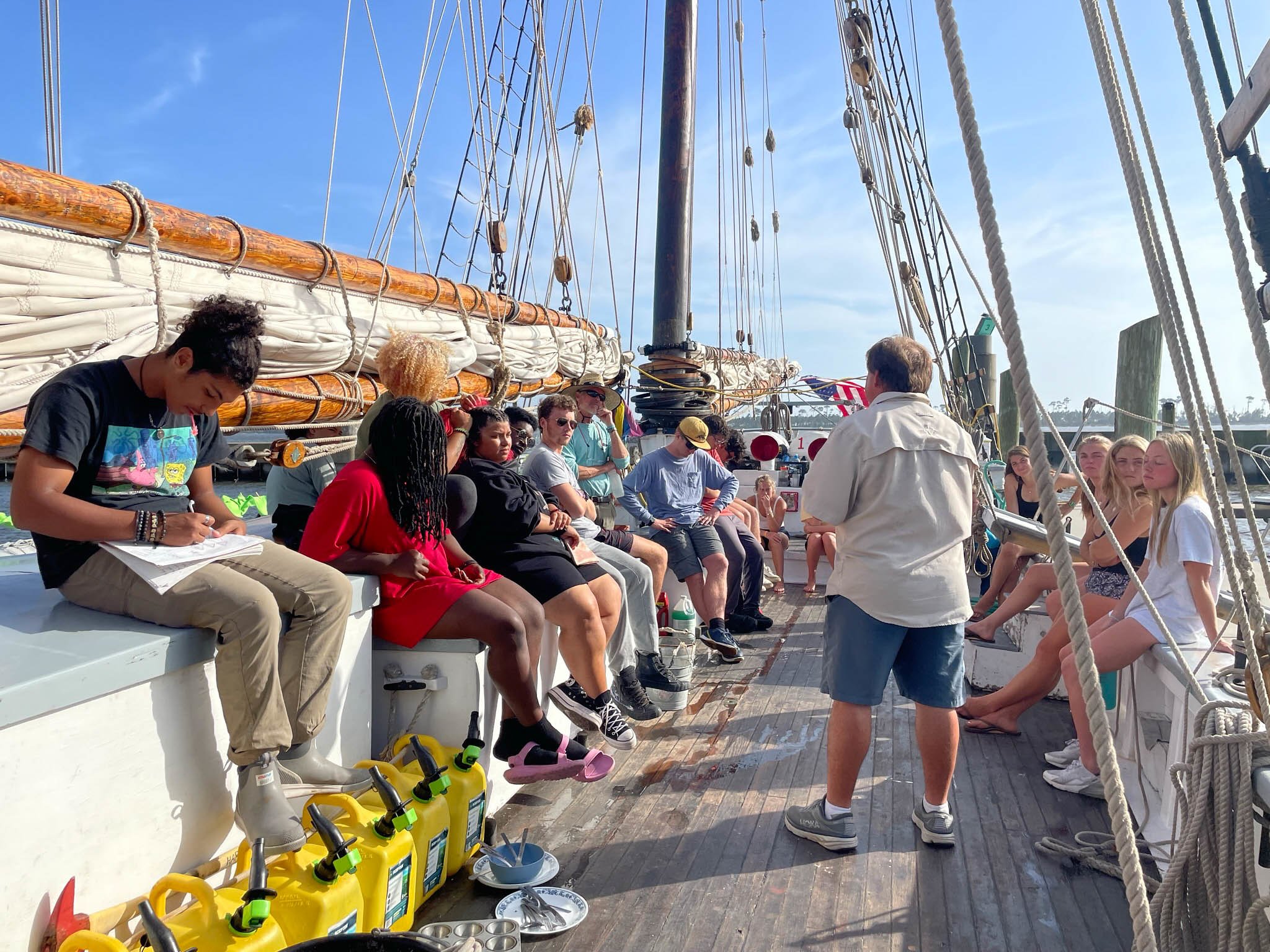
As a culminating experience, we then traveled to the Equal Justice Initiative museum and memorial in Montgomery to view this most powerful memorial started by Bryan Stevenson whose book Just Mercy initiated the idea to create this place of recognition to commemorate the history of the brutal injustice that befell close to 4 million Africans who were forcibly removed from their homeland as a source of free labor.
We were also very fortunate to have Darron Patterson who is a descendant of the Clotilda spend time with all of us on the Harvey Gamage describing and discussing what his life was like living as a descendent in Africatown and how his now knowing of the exact location of the ship near his home has given him some closure to a chapter in Mobile’s history which for some would have been preferred forgotten.
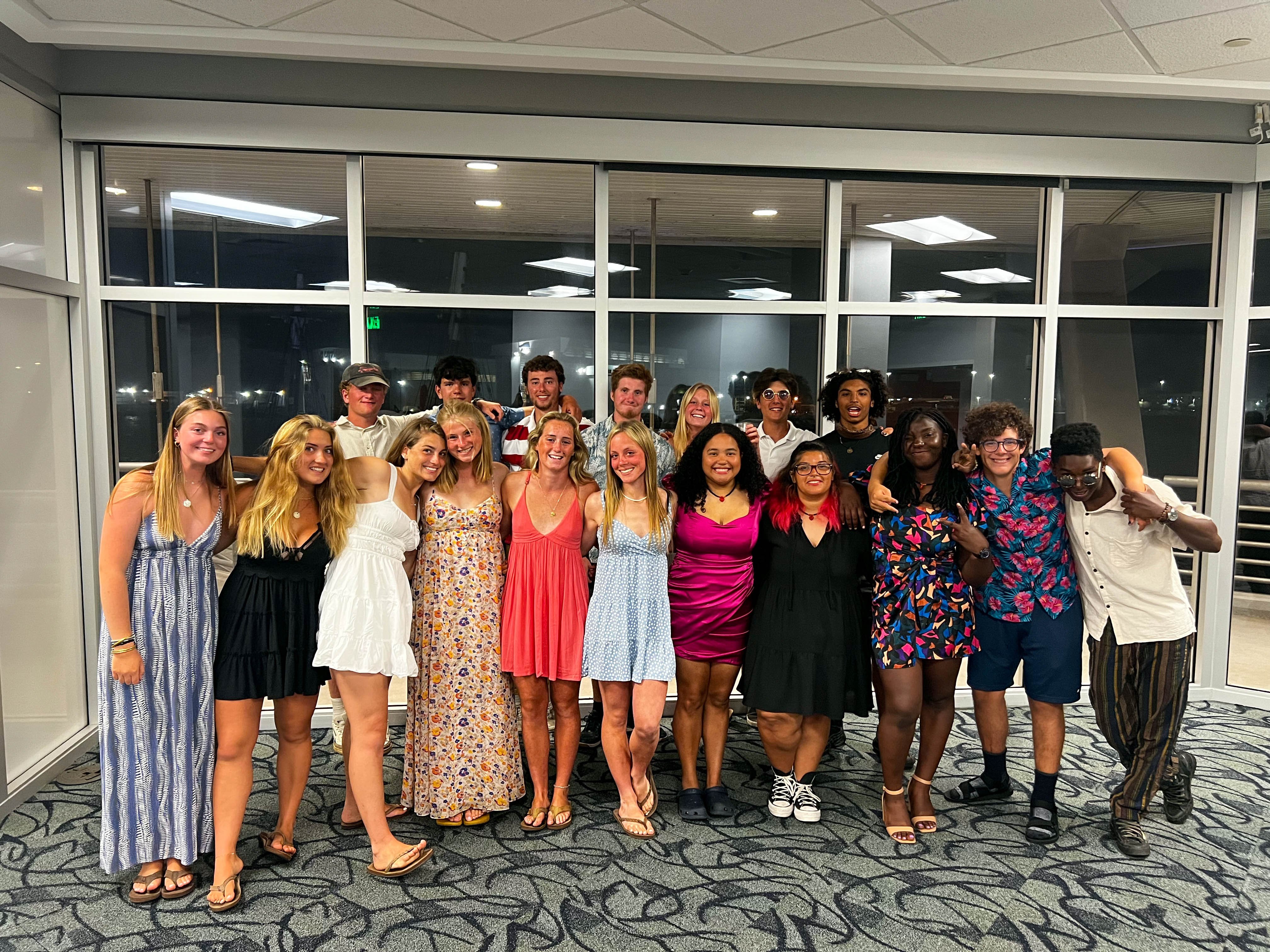
The experience of Ocean Classroom for our students and our partner school, The MET School of Providence, RI, is about so much more than simply learning to crew a 130 foot schooner over a thousand mile journey. It is about more than learning to live alongside others in cramped quarters while studying navigation, marine biology, and maritime literature. It is about wrestling with, first hand, the most challenging, uncomfortable, and powerful conversations that we, as a country and as a people, must wrestle with as we understand our shared history. I felt fortunate to be able to have this experience alongside our students this winter.
- Brooks Bicknell '77 | Ocean Classroom Director








